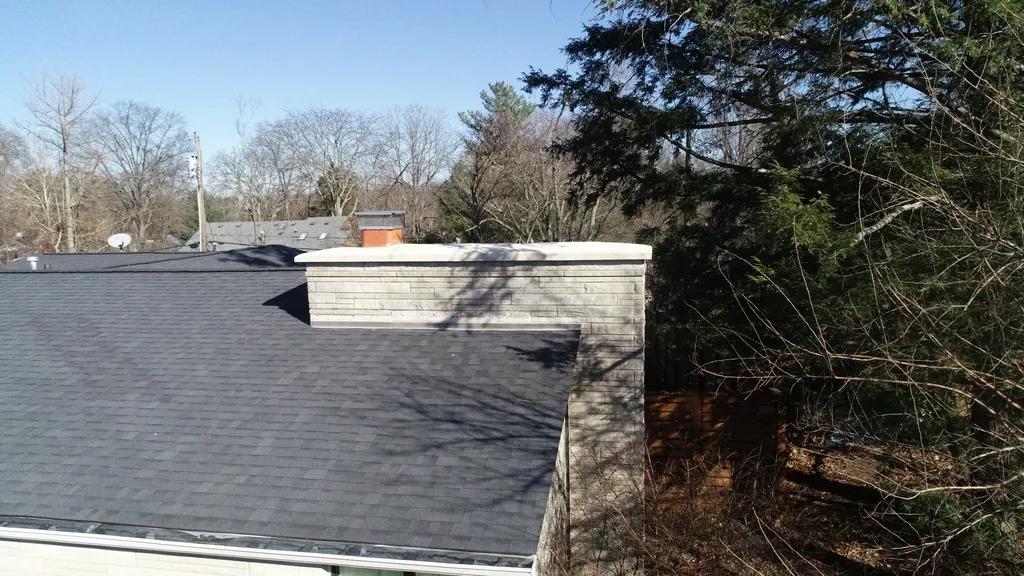Rain dripping down a chimney can be a common occurrence for homeowners, especially during stormy weather. Understanding why this happens and how to address the issue can help prevent damage to your home and fireplace. In this article, we will explore the reasons behind rain dripping down chimneys and provide practical solutions to mitigate this problem. Let’s delve into the science behind this phenomenon and equip you with the knowledge to protect your property from water intrusion.
Table of Contents
- Common Causes of Rain Dripping Down Chimney
- Effects of Rainwater Infiltration on Chimney Structure
- Preventative Measures to Stop Rain from Entering Chimney
- Signs of Water Damage in Chimney and How to Address Them
- Q&A
- The Conclusion

Common Causes of Rain Dripping Down Chimney
One common cause of rain dripping down the chimney is a damaged chimney crown. The chimney crown is a masonry cap that sits on top of the chimney and helps protect it from water intrusion. If the crown is cracked or deteriorating, water can easily seep through and into the chimney, causing leaks and drips during rainstorms.
Another common cause of rain dripping down the chimney is a damaged or missing chimney cap. The chimney cap is a metal or masonry structure that sits on top of the flue and helps prevent water from entering the chimney. If the chimney cap is damaged or missing, rainwater can easily flow directly into the flue and down into the fireplace, leading to leaks and water damage.

Effects of Rainwater Infiltration on Chimney Structure
When rainwater infiltrates a chimney structure, it can have significant effects on its overall integrity and lifespan. One of the most common issues that can arise from rain dripping down a chimney is the deterioration of the bricks and mortar. As water seeps into the porous materials, it can cause them to break down over time, leading to cracks, spalling, and ultimately structural instability.
Additionally, rainwater that enters the chimney can create a breeding ground for mold and mildew, which can not only compromise the structural integrity of the chimney but also pose health risks to those living in the home. It is crucial for homeowners to be proactive in preventing rainwater infiltration by ensuring their chimney is properly sealed and maintained on a regular basis. Regular inspections and repairs by a professional chimney specialist can help mitigate the effects of rainwater on the structure and ensure that it remains safe and functional for years to come.

Preventative Measures to Stop Rain from Entering Chimney
One common issue homeowners face is rain dripping down their chimney, which can lead to water damage, mold growth, and structural deterioration. To prevent rain from entering your chimney, it’s important to take preventative measures to ensure your fireplace and chimney are properly sealed and protected.
Here are some effective preventative measures to stop rain from entering your chimney:
- Install a chimney cap: A chimney cap acts as a barrier to prevent rainwater from entering your chimney while still allowing smoke to escape.
- Repair any cracks or gaps: Inspect your chimney for any cracks or gaps that may allow water to seep in. Seal these areas with a waterproof sealant to prevent leaks.

Signs of Water Damage in Chimney and How to Address Them
Water damage in chimneys is a common issue that homeowners face, especially during the rainy season. One of the signs of water damage in your chimney is rain dripping down the flue and into your fireplace. This can lead to a host of problems, including mold growth, structural damage, and even a fire hazard.
To address rain dripping down your chimney, you can take the following steps:
- Inspect the chimney cap: Make sure the chimney cap is in good condition and properly installed to prevent rainwater from entering the flue.
- Check for cracks: Look for any cracks or damage in the chimney structure that could be allowing water to seep in.
- Repair any leaks: If you notice any leaks or water intrusion, it is important to address them promptly to prevent further damage.
Q&A
Q: What causes rain to drip down a chimney?
A: Rain can drip down a chimney due to damaged flashing, a faulty chimney cap, or a structural issue with the chimney itself.
Q: What is flashing and how does it affect rain dripping down a chimney?
A: Flashing is a piece of metal that covers the joint between the chimney and the roof. If the flashing is damaged or improperly installed, rain can seep in and drip down the chimney.
Q: How does a chimney cap prevent rain from dripping down a chimney?
A: A chimney cap is a covering that sits on top of the chimney opening, preventing rainwater from entering. If the cap is damaged or missing, rain can easily enter the chimney and cause dripping.
Q: Can rain dripping down a chimney cause damage to the fireplace or home?
A: Yes, rainwater dripping down a chimney can cause water damage to the fireplace, chimney structure, and even the interior of the home if left unchecked.
Q: How can I prevent rain from dripping down my chimney?
A: Regular chimney inspections, maintenance, and repairs can help prevent rain from dripping down a chimney. Installing a chimney cap and ensuring proper flashing can also help keep rainwater out.
The Conclusion
In conclusion, understanding the phenomenon of rain dripping down chimneys is essential for homeowners to prevent any potential damage to their homes. By identifying the causes and addressing them promptly, one can effectively protect their property from water infiltration and structural deterioration. Regular maintenance and proper insulation are key factors in mitigating this issue. We hope this article has provided you with valuable insights into this common problem and equipped you with the knowledge to take proactive steps to resolve it. Remember, when it comes to protecting your home, knowledge is power.


